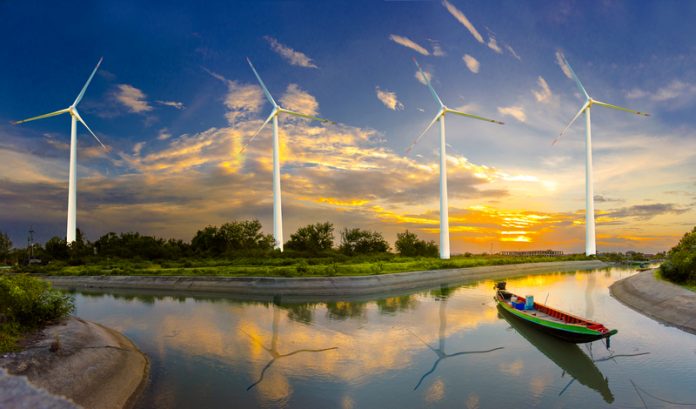Matt Gwyn, Just Transition Strategic Engagement Lead at the World Benchmarking Alliance, reveals how we ensure decarbonisation works for everyone
While highly ambitious, let there be no doubt that a zero-carbon world is possible. To achieve the goal, a rapid sectoral and economic transformation across the entire global economy is needed. Such fundamental change comes with a huge risk of negative impact on people’s lives and livelihoods, due to uneven levels of economic development and energy dependency. The process by which we achieve decarbonisation, recognising and managing the side effects it will cause is, therefore, crucial to the long-term success and stability of a zero-carbon world.
The journey to ‘net zero’ must ensure environmental permanency while considering and supporting economic viability, social inclusion and poverty eradication. This concept is known as a ‘just transition’ and is not a new idea. It is baked into the Paris Agreement, with signatories pledging to “take into account the imperatives of a just transition of the workforce and the creation of decent work and quality jobs in accordance with nationally defined development priorities.” Yet when we assess climate action taken so far – across both the private and public sectors – all too often plans stop short of considering the social impact of change.
Action requires ambition beyond climate
There is a common perception that social and environmental issues must be tackled separately; that it is too difficult to combat these issues together. What is missing is a clear pathway or framework from which organisations across sectors and geographies can work to implement a just transition. The World Benchmarking Alliance (WBA) views it as a three-fold concept that is founded in a systems thinking approach:
1. Enhance today’s skills for tomorrow
As with all structural economic changes, new skills will be required for working with clean energy technologies. Employees need to receive training to gain newly relevant and newly developed skills, especially in sectors which are ‘great enablers’ like electric utilities. This approach will create job opportunities, while also having the potential to accelerate the transition, both directly and indirectly for the industries reliant on these ‘great enablers’.
However, research from our Electric Utilities Benchmark from 2020 showed less than 10% of the sector’s 50 keystone companies have Paris-aligned targets. Furthermore, the sector demonstrates a lack of ambition in terms of transition planning, milestone creation and accountability. With electricity demand predicted to increase by nearly 80% before 2050, we are sleepwalking- ing into a ‘shock transition’. This would undoubtedly cost jobs and produce long-term economic consequences for the people who work in, and depend on, electric utilities as well as the numerous sectors it enables.
2. Social protections in supply chains
According to WBA’s 2020 Corporate Human Rights Benchmark, where companies demonstrate action on climate issues they disclose very little, if any, information on how they manage human rights, and vice versa. This is alarming, particularly as the link between human rights and climate change is becoming ever clearer. Without consideration for human rights as an integrated part of climate impact planning, we only exacerbate existing inequalities and increase the potential for exploitation of already vulnerable groups.
As new technologies emerge, we have an opportunity to reset our approach to supply chains. Sadly, there are already reports of serious human rights violations associated with the production of electric vehicle battery materials, raised by both the Investor Advocates for Social Justice (1) and Amnesty International. (2)
3. Energy transition for all
Major decarbonisation is fundamental to everyone delivering on the Paris Agreement’s well below 2°C scenario. It is necessary but not sufficient when it comes to achieving the Agreement’s targets or the wider SDGs. At a global level, we must work harder to ensure no community is left behind. The climate crisis is already impacting the world’s most vulnerable populations. An improperly managed low-carbon transition will only cause further violation of these most at-risk groups and areas.
The food system is an example of this in action. Most farmers in the least developed countries – where almost a quarter of the populations suffer food insecurity – are small-scale producers. They are most vulnerable to environmental and price shocks and it is this type of worker we need to remember when we consider that leaving no-one behind means more than just the workers in the high emitting sectors.
There is an urgent and clear need to act with more responsibility when we consider climate solutions. One year into the UN’s ‘decade of action’ on the SDGs, we
have made huge progress with commitments. However, few are translating this progress into on-the-ground actions that enable a just transition. The private sector is uniquely placed to lead the way in facilitating inclusive and equitable low-carbon transition. With proper preparation and consideration for a just transition, we have an opportunity to protect people, their rights and livelihoods while securing a future for the planet. It is only by applying this systems thinking approach that we can succeed in creating a more sustainable future, that works for all.
References
1) https://iasj.org/wp-content/uploads/IASJ_ShiftingGearsReport_F.pdf











